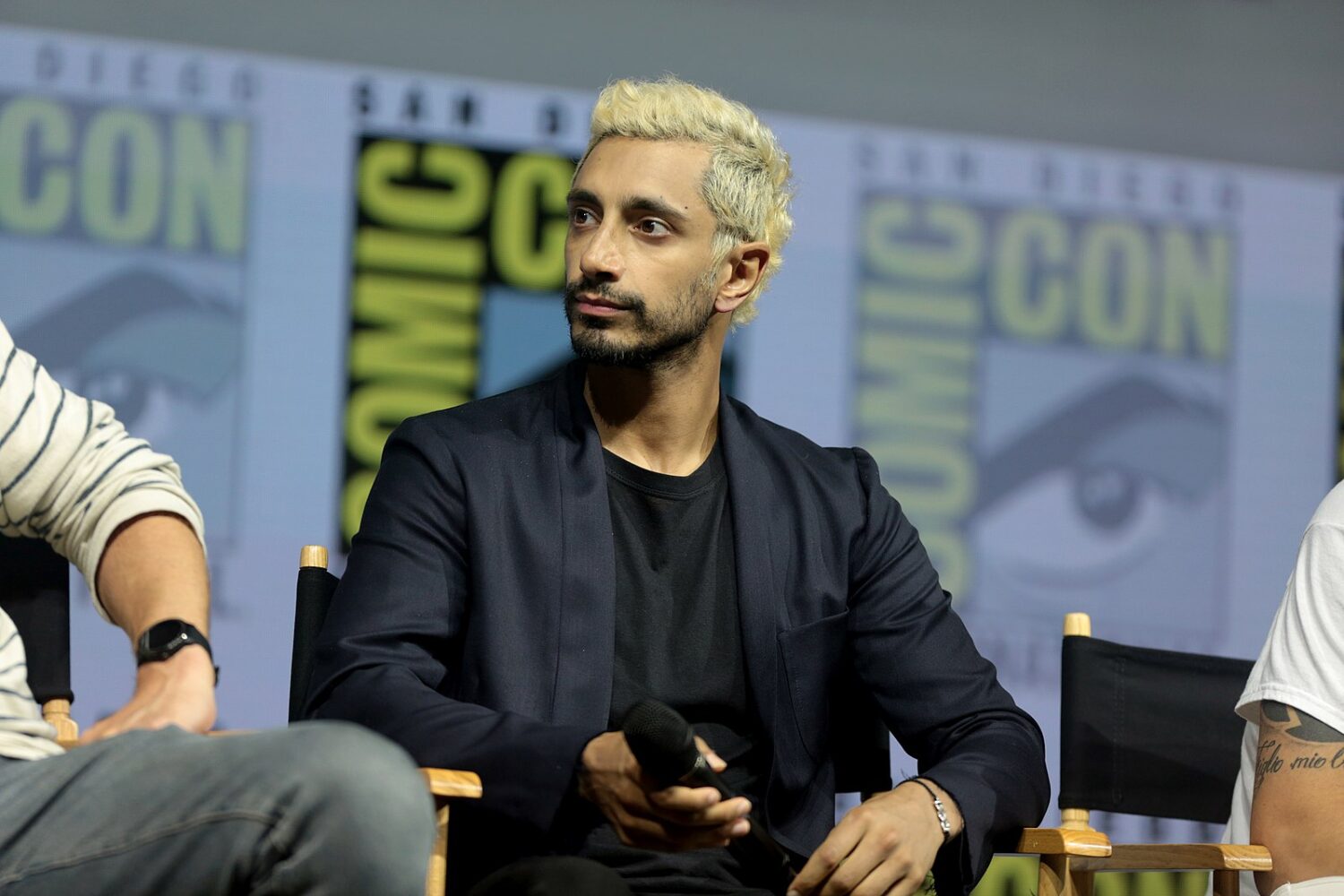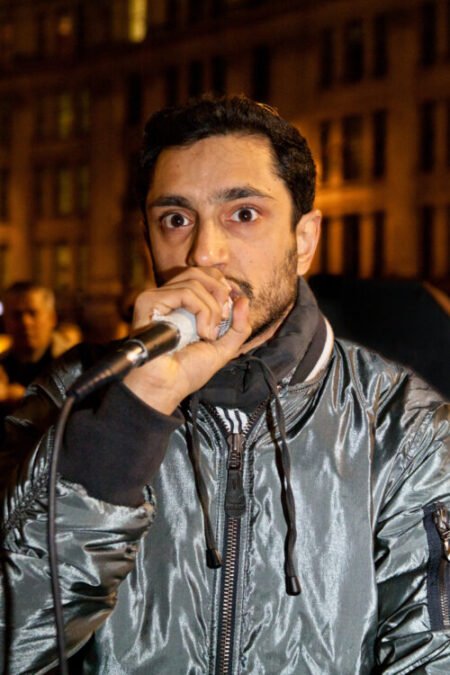As it’s South Asian Heritage month, it’s only right that we acknowledge notable South Asian figures who have greatly contributed to the community. British Muslim Riz Ahmed fits that bill perfectly. The actor, musician come activist is proud of both his faith and heritage and provides a wealth of support to the corresponding communities, using his platform of success to highlight their daily struggles of living in the western world.
The Beginning of Riz Ahmed’s Career
Despite being a musician, Riz Ahmed is mostly known for his impeccable acting. He debuted in 2006 in The Road to Guantánamo. A provocative and controversial movie about the aftermath of 9/11. The movie won a Silver Bear Award at the Berlin Film Festival.
The highlights of his career are mostly indie movies including the likes of The Reluctant Fundamentalist and Nightcrawler. In 2014 he directed and wrote a short film titled Daydreamer which won him the Best Live Action Short award at Nashville Film Festival.
However he’s no stranger to Hollywood and has starred in some of it’s biggest blockbusters such as ‘Rogue One: A Star Wars Story’ and ‘Venom’. In 2019 he starred in the critically acclaimed production ‘Sound of Metal’. A movie about a drummer whose whole life is his music but who inevitably starts losing his hearing. Ahmed’s outstanding performance as the lead character received his first ever Academy Award nomination for Best Actor. On top of that, the 2021 Oscars turned to be a turning point event for the entertainment industry…and Riz. As Ahmed became the first Muslim and Pakistani actor ever to receive an Oscar nomination.
Throughout his movie career, Ahmed successfully snatched a couple of other firsts: first South Asian male actor to win an acting Emmy and first South Asian and Muslim to win a lead acting Emmy.
 Red Carpet Report on Mingle Media TV from Culver City, USA, CC BY-SA 2.0
Red Carpet Report on Mingle Media TV from Culver City, USA, CC BY-SA 2.0 Music Career
Riz Ahmed’s music career began in his mid-teens. Inspired by jungle and hip-hop music, his lyrics carry socially political messages. He was one of the co-founders of Hit & Run nights which became one of Manchester’s biggest music events. Then, years later Ahmed founded his own independent record label ‘Battered Record’.
His most popular song ‘Post 9/11 Blues’, also became the most controversial. recorded in 2006, the same year he won ‘Best MC’ at the Asian Music Awards. It is a social-commentary rap track about the post 9/11 climate, terrorism, the Iraq war, the Belmarsh prison, MI6 and the death of Jean Charles.
He never released the song officially. Instead, the track leaked and led to series of controversies. The media and the public labelled it “politically sensitive” and British radios refused to play it.
However, Post 9/11 Blues perfectly summarises, Ahmed’s career. His aim to raise awareness of the systematic racism South Asian and Muslim people go through while advocating for equality for these communities within the western countries.
 Gage Skidmore from Peoria, AZ, United States of America, CC BY-SA 2.0
Gage Skidmore from Peoria, AZ, United States of America, CC BY-SA 2.0 Ahmed And Activism
To no one’s surprise, after his return from the Berlin Music Festival in 2006, Ahmed was detained at Luton airport with a fellow actor. Officers searched and questioned him regarding his intentions for his career. And whether he became an actor for the sole reason of furthering the Islamic cause. They verbally abused him and denied him an access to a phone.
Ever since, Ahmed has been a righteous activist. Beyond his political messages in his music, Riz Ahmed has always been outspoken about the negative stereotypes of Muslim people both in social and personal situations. He raises funds for Syrian refugee children and for Rohingya refugees of Bangladesh. He advocates for representation at the House of Commons.
His talent for writing stretches beyond screenwriting and lyrics. In 2016 he contributes an essay for the anthology book The Good Immigrant. The essay is about racial profiling at airports and auditions. As a victim of racial profiling himself, Ahmed talks about the constant struggles of South Asian and Muslim people. The mistreatment and dehumanisation that they have to learn to live with.
The ‘Riz Test’
UK researchers Sadia Habib and Chaf Choudry created the Riz Test mimicking the Bechdel test. The test can be useful to judge Muslim representation in the entertainment media. Ahmed’s 2017 speech at the House of Commons regarding the lack of proper portrayal of Muslims and South Asian in movies and T.V shows inspired the creation of the test.
It covers the following areas:
- If a character is identifiably Muslim, is the character talking about, the victim of, or the perpetrator of terrorism?
- Presented as irrationally angry?
- Portrayed as superstitious, culturally backwards or anti-modern?
- Characterised as a threat to a Western way of life?
- If the character is male, is he presented as misogynistic? or if female, is she presented as oppressed by her male counterparts?
Riz shared on his social media how honored he felt for having the test named after him.
He continues to use his platform to call out the toxic portrayal of Muslims in the Arts. They are either villains or invisible. And in the rare moments when the representation is positive, their character arcs revolve solely around them being Muslims. This makes their religion their sole personality trait.
 Ashley Burton, CC BY-SA 3.0
Ashley Burton, CC BY-SA 3.0 Beyond Words
In interviews, Riz Ahmed shares how this omission of proper South Asian diversity in both films and shows has led to not only “lost audience” but also “lost lives”. Regardless if a movie is fictional or not, it reflects how the creators view real-life people from these communities. So, the stereotypical depiction of such characters carries dehumanising and demonising traits. Traits which are harmful to South Asian and Muslim people.
Whether with interviews, or through campaigns and charities, Ahmed has shown how to properly use your platform in order to make a positive change. His activism like his talent knows no bounds. From raising awareness of the ways the media portrays Muslim and South Asian people, to donating to Rohingya child refugees. He is a notable man and a good role model. Not only to the people of his ethnical and religious belonging but to everybody else too. He is striving for inclusion, an accurate representation of diversity and ultimately equality within western society both on and off screen.
